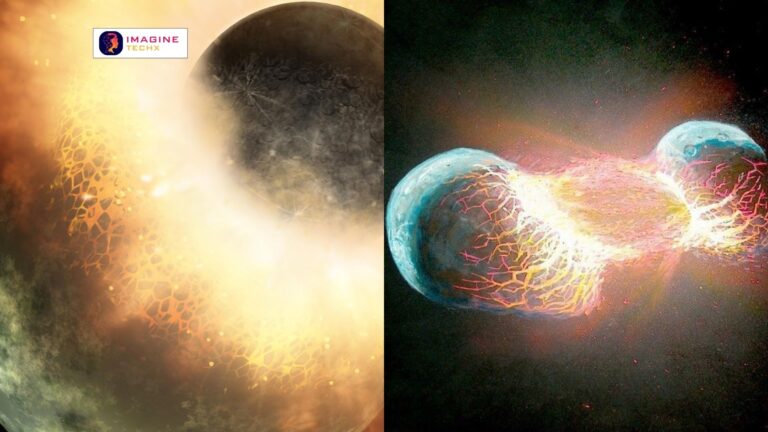Why Putin Wants Russia To Win The Artificial Intelligence Race
Introduction Of Putin Wants:
In the ever-evolving landscape of global politics and technology, President Vladimir Putin’s bold proclamation in 2017 set the stage for Russia’s ambitious journey into the realm of artificial intelligence (AI). His declaration that “Whoever leads in AI will rule the world” hinted at the strategic importance of AI in shaping the future geopolitical landscape. However, as we fast forward six years from that statement, Russia finds itself facing unexpected challenges, international isolation, and a rapidly closing window of opportunity.
Image Credit To: The Moscow Times
The Prelude: Social Media and Color Revolutions
To understand Russia’s current predicament in the AI race, we must rewind to a time when social media emerged as a potent force in shaping political narratives. The “Twitter revolution” in Moldova in 2009, where protests organized on American social networks influenced election outcomes, served as a wake-up call for Moscow. Subsequent movements, such as the Bolotnaya Square protests in 2011-2012, convinced Russia’s leadership that social media could be a catalyst for political upheaval.
You Can Read This Post Also: Hilarious Early Deals On Black Friday
The Rise of Generative AI: A New Challenge Emerges
Just as Russia began to grasp the transformative potential of artificial intelligence, geopolitical events took an unexpected turn. Major breakthroughs in neural networks in 2013 spurred a global AI research revolution. However, Russia’s invasion of Crimea in 2014 and the conflict in the Donbas in 2015 led to international isolation and the departure of tech talent, putting a dent in the nation’s aspirations to lead in AI.
Undeterred, the Kremlin launched a national AI strategy in 2019, allocating a substantial budget of 66 billion rubles ($1.02 billion) to support AI research, conferences, and collaborations with domestic tech giants. This move, however, was met with further challenges when Russia invaded Ukraine in February 2022. International collaborators withdrew, and companies like NVIDIA, crucial for advanced processing, halted sales in Russia. The exodus of tech talent and the impact of sanctions created a perfect storm, severely limiting the resources available for AI development.
ChatGPT’s Entrance: A Versatile Tool Raises Concerns
Amidst these challenges, the release of ChatGPT-3 by the U.S.-based OpenAI in November 2022 added a new layer of complexity to Russia’s AI landscape. ChatGPT-3, a versatile tool capable of human-like conversations, posed a significant question: if social media could influence political outcomes, what power might a sophisticated AI language model hold?
Russia’s response was swift and decisive – ChatGPT was banned. The fear was rooted in the understanding that models trained on English-language data might interpret the world through a lens shaped by English-speaking media. The inherent bias in models became a point of contention, leading to restrictions on the use of such generative AI tools within the country.
Language Barrier: A Fundamental Obstacle for Russian Models
The language barrier became a formidable obstacle for Russia’s AI ambitions. While Russian is the second or third-most common language of online data, it only accounts for 5% of the total. This discrepancy poses a significant challenge for Russian language models, including YaChat from Yandex, GigaChat from Sberbank, and SistemmaChat from Sistemma Bank.
The sheer scale of data available in English compared to Russian creates a fundamental problem. If a model is trained on 10 times more English data than Russian, it is more likely to generate results that align with English-speaking media. This reality puts Russian models at a disadvantage, especially when competing on the global stage where English dominates.
Blogger Comparisons: GigaChat vs. ChatGPT
Russian tech bloggers, tasked with comparing their home-grown models to the formidable ChatGPT, overwhelmingly prefer the American competitor. Despite GigaChat’s apparent outperformance in longer Russian conversations, the sheer scale of ChatGPT-3 and the anticipated ChatGPT-4, with estimated parameter counts reaching 1.76 trillion, present an insurmountable challenge for the Russian contenders.
While the possible parameter counts for GigaChat might increase, the demand for more computing power becomes a significant hurdle. ChatGPT-3, for instance, required a staggering 285,000 processor cores for training alone. The sanctions and suspended operations in Russia have resulted in a crippling shortage of similar chips, acutely limiting the amount of computing power available for AI development.
Government’s Role: Draconian Laws and Restricted Information Flow
Adding to the challenges, the Russian government has exacerbated the situation with draconian laws aimed at curtailing information deemed unfavorable to the state. Most large language models operate on a probabilistic basis, meaning the same input may not necessarily produce the same result. This inherent uncertainty becomes a point of concern when dealing with politically sensitive questions.
Models like Alice and GigaChat, constrained by the need to avoid controversial responses, refuse to answer questions ranging from the causes of specific military operations to seemingly innocuous inquiries about Russia’s efforts to promote AI research. In contrast, ChatGPT, with its lack of compunction, provides answers, even in Russian, that might align with standard Western perspectives.
Bleak Outlook: Russia’s AI Sector in Global Rankings
As the narrative unfolds, the overall outlook for Russia’s AI sector appears increasingly bleak. Stanford’s ranking of the world’s AI development centers positions Russia below Norway and just above Denmark, whose combined populations are smaller than that of Moscow. The war in Ukraine, intended to safeguard Russia’s interests, has backfired in almost every conceivable way.
The conflict, far from solidifying Russia’s position, has accelerated NATO expansion, affirmed Ukrainian national consciousness, and, perhaps most devastatingly for Putin’s vision, closed Russia’s narrow window to catch up in the critical field of AI. If Putin indeed believes that the future masters of AI will be masters of the universe, then the war’s consequences on Russia’s AI ambitions may be the most profound and far-reaching.
You Can Read This Post Also: Farewell to Omegle: A 14-Year Journey of Anonymity and Controversy
Conclusion: A Cautionary Tale of Missed Opportunities
In the grand narrative of global power dynamics and technological prowess, Russia’s AI odyssey serves as a cautionary tale. The journey, marked by missteps, geopolitical miscalculations, and unforeseen challenges, unveils a nation struggling to assert itself in the rapidly advancing field of artificial intelligence.
As the curtain falls on this narrative, the consequences of Russia’s actions become clear. The war in Ukraine, once seen as a strategic move to safeguard national interests, has inadvertently become a catalyst for setbacks in the realm of AI. The missed opportunities, combined with the evolving dynamics of global technology, leave Russia trailing behind, facing the stark reality of a race that slipped away. If Putin’s belief in the centrality of AI to global power dynamics holds true, then Russia’s AI odyssey may indeed be one of the most consequential chapters in its contemporary history.






